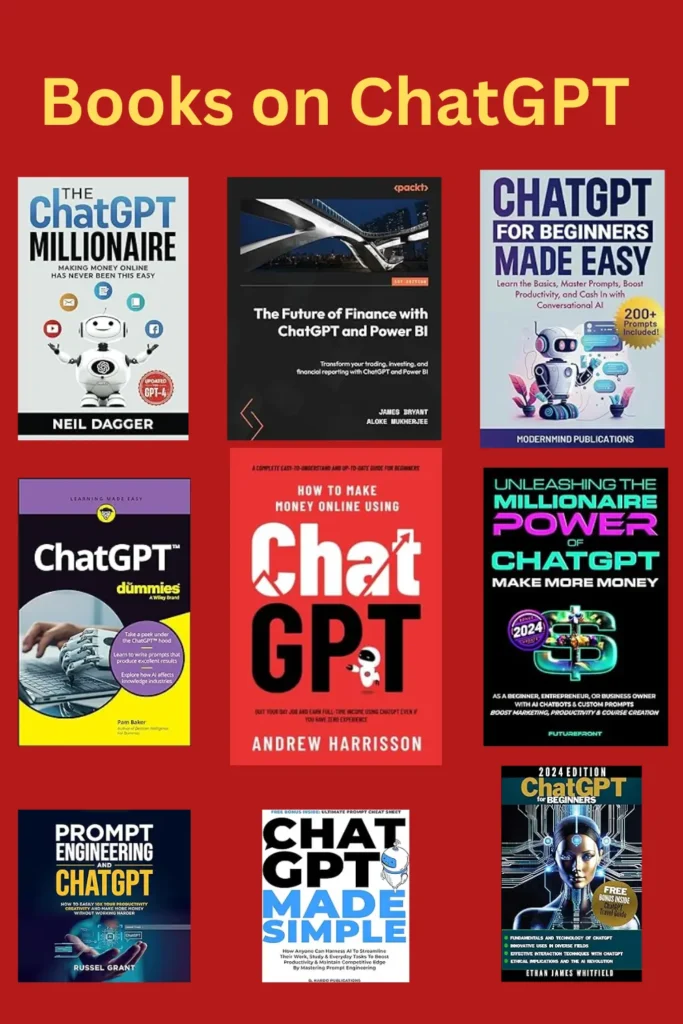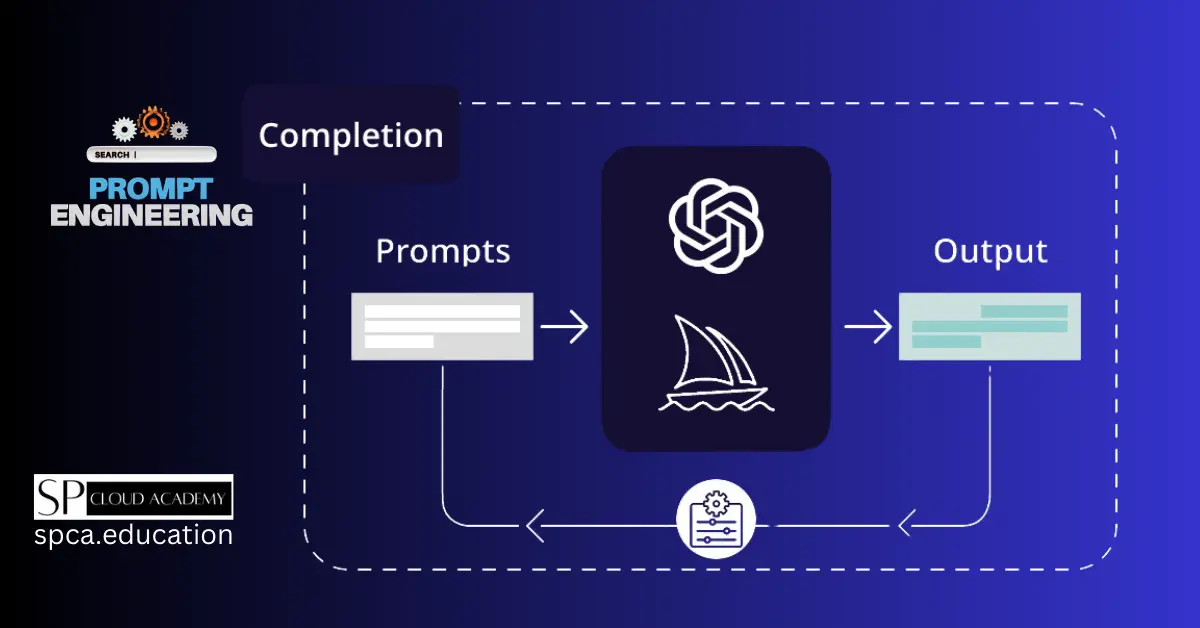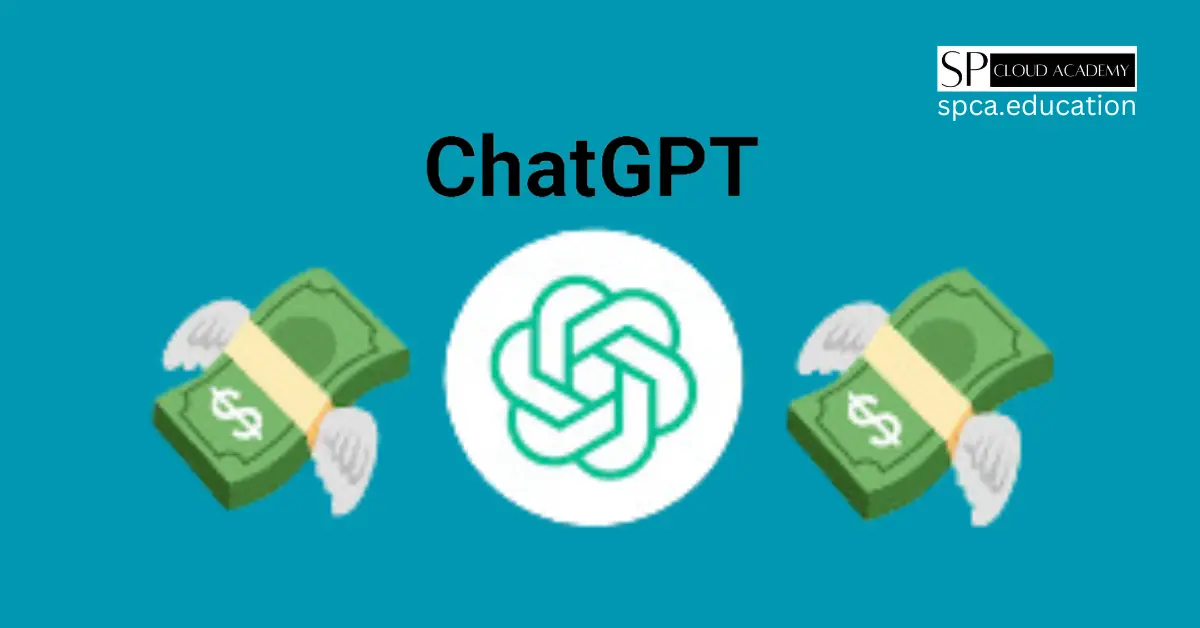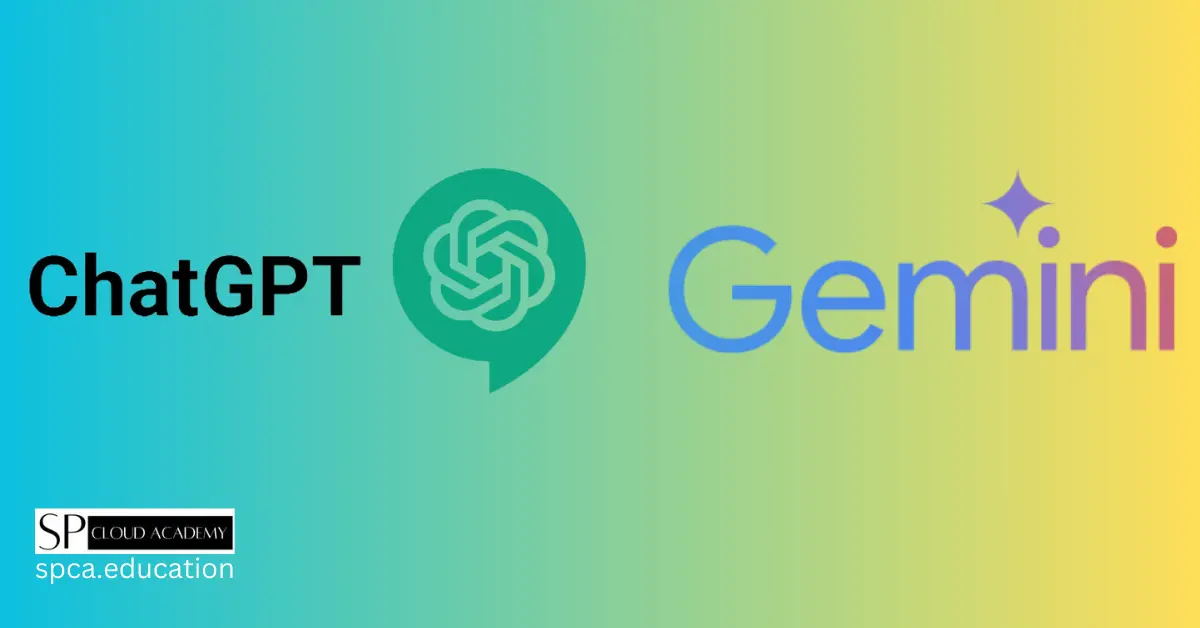Artificial Intelligence (AI) has become a cornerstone of technological advancement, impacting various industries and aspects of daily life. Among the AI-powered platforms leading this revolution, OpenAI’s ChatGPT and Google’s Gemini have emerged as formidable competitors. Both are designed to facilitate human-machine interactions, offering unique functionalities that cater to diverse user needs. In this comprehensive article, we delve deep into the ultimate showdown between ChatGPT and Gemini, exploring their origins, capabilities, applications, and how they shape the future of AI.
Table of Contents
- Understanding AI Language Models
- The Evolution of AI Language Models
- Key Concepts in AI Language Processing
- The Role of Natural Language Processing (NLP)
- Overview of ChatGPT
- History and Development
- Core Features and Capabilities
- ChatGPT’s Place in the AI Ecosystem
- Overview of Gemini
- History and Development
- Core Features and Capabilities
- Gemini’s Place in the AI Ecosystem
- Comparative Analysis: ChatGPT vs. Gemini
- Technical Architecture
- Performance Metrics
- Usability and User Experience
- Security and Privacy Features
- Applications of ChatGPT
- Use Cases in Customer Service
- Educational Applications
- Content Creation and Marketing
- Personal Assistants and Automation
- Applications of Gemini
- Use Cases in Data Analysis
- Healthcare and Diagnostics
- Financial Services and Risk Management
- AI in Entertainment and Media
- Impact on Industries
- AI in Business Operations
- Transformations in Healthcare
- Innovations in Education
- Future Trends in AI and Industry Disruption
- Ethical Considerations and AI Governance
- Addressing AI Bias
- The Importance of Transparency in AI
- Regulatory Challenges and Solutions
- The Future of AI: Predictions and Trends
- The Next Generation of AI Models
- AI Integration with Other Technologies
- Potential Societal Impacts
- Conclusion
- Summary of Key Points
- Final Thoughts on ChatGPT vs. Gemini
- What Lies Ahead for AI?
Understanding AI Language Models
The Evolution of AI Language Models
Artificial Intelligence has a long and storied history, with language models being a pivotal component of its progress. From rule-based systems of the early days to the sophisticated deep learning models of today, AI language processing has undergone significant evolution. Early AI models were limited by their reliance on predefined rules and lacked the ability to understand context. However, the advent of machine learning and, subsequently, deep learning has revolutionized how machines process and understand human language.
Modern AI language models, such as ChatGPT and Gemini, are built on transformer architectures that enable them to understand and generate human-like text. These models are trained on vast datasets containing text from diverse sources, allowing them to learn patterns, context, and even nuances of language.
Key Concepts in AI Language Processing
AI language processing revolves around several key concepts that form the foundation of models like ChatGPT and Gemini. These concepts include:
- Natural Language Processing (NLP): NLP is a subfield of AI that focuses on the interaction between computers and humans through natural language. It involves tasks like text classification, sentiment analysis, and machine translation.
- Transformers: Transformers are a type of deep learning model that has become the standard for NLP tasks. They utilize self-attention mechanisms to weigh the importance of different words in a sentence, enabling the model to understand context better.
- Pre-training and Fine-tuning: AI models are typically pre-trained on large datasets and then fine-tuned on specific tasks. Pre-training allows the model to learn general language patterns, while fine-tuning helps it specialize in particular applications.
The Role of Natural Language Processing (NLP)
NLP plays a crucial role in the functioning of AI language models. It enables machines to understand, interpret, and generate human language in a way that is both meaningful and useful. NLP techniques are used in various applications, from voice assistants like Siri and Alexa to chatbots and automated customer service agents.
The effectiveness of NLP in AI models depends on several factors, including the quality of training data, the model’s architecture, and the specific tasks for which the model is fine-tuned. As NLP technology continues to advance, we can expect even more sophisticated AI models that are capable of understanding complex language patterns and generating more accurate and contextually appropriate responses.
Overview of ChatGPT
History and Development
ChatGPT is a product of OpenAI, an organization dedicated to advancing AI in a safe and beneficial manner. The development of ChatGPT is rooted in OpenAI’s earlier work on the GPT (Generative Pre-trained Transformer) series of models. GPT-3, one of the predecessors of ChatGPT, was a groundbreaking model that set new benchmarks for language understanding and generation.
ChatGPT builds on the capabilities of GPT-3, with improvements in conversational abilities and contextual understanding. It was designed to be more interactive, allowing for more natural and coherent dialogues with users. The development of ChatGPT involved extensive research in AI safety, ensuring that the model could generate useful responses while minimizing harmful outputs.
Core Features and Capabilities
ChatGPT is equipped with several features that make it a powerful tool for a wide range of applications:
- Conversational AI: ChatGPT excels in generating human-like responses in conversations, making it suitable for chatbots, virtual assistants, and customer service applications.
- Contextual Understanding: The model can maintain context across multiple turns in a conversation, allowing for more coherent and relevant interactions.
- Versatility: ChatGPT can be used for various tasks, including answering questions, providing recommendations, and even creative writing.
ChatGPT’s Place in the AI Ecosystem
Within the AI ecosystem, ChatGPT stands out as a versatile and accessible tool for both developers and end-users. It has been integrated into numerous platforms and services, ranging from customer support chatbots to educational tools. Its ability to generate human-like text has also made it popular among content creators, marketers, and businesses looking to automate communication tasks.
As AI continues to evolve, ChatGPT is expected to play a significant role in shaping how humans interact with machines. Its potential applications are vast, and its ongoing development promises to bring even more advanced features and capabilities in the future.

Books on ChatGPT offer a clear and engaging introduction to AI-driven conversational agents. They break down complex ideas into easy-to-understand concepts, perfect for newcomers and tech enthusiasts alike. While some sections may be a bit technical, the overall clarity and depth make these books an excellent resource for anyone curious about AI and its applications in language models like ChatGPT.
Overview of Gemini
History and Development
Gemini, developed by Google, is another formidable player in the AI language model space. Like ChatGPT, Gemini is built on a transformer architecture, allowing it to process and generate natural language text. The development of Gemini was part of Google’s broader efforts to enhance its AI capabilities, particularly in the areas of language understanding and machine learning.
Gemini was designed with a focus on advanced data analysis and decision-making capabilities, making it particularly well-suited for applications in industries like healthcare, finance, and media. Google’s expertise in data processing and AI research has enabled Gemini to offer unique features that set it apart from other AI models.
Core Features and Capabilities
Gemini offers a range of features that make it a powerful tool for specialized applications:
- Advanced Data Analysis: Gemini is capable of processing large datasets and generating insights that are useful for decision-making in complex environments.
- Healthcare Applications: One of the standout features of Gemini is its ability to assist in healthcare, particularly in diagnostics and treatment recommendations.
- Customization: Gemini allows for a high degree of customization, enabling businesses to tailor the model’s capabilities to specific use cases.
Gemini’s Place in the AI Ecosystem
Gemini occupies a unique position in the AI ecosystem, with a strong focus on industry-specific applications. While it may not be as widely used for general conversational AI as ChatGPT, its specialized capabilities make it an invaluable tool in sectors where data-driven decision-making is critical.
Google’s integration of Gemini into its suite of AI tools and services has further solidified its place in the AI ecosystem. As AI technology continues to advance, Gemini is likely to become an increasingly important asset for businesses looking to leverage AI for complex tasks.
Comparative Analysis: ChatGPT vs. Gemini
Technical Architecture
Both ChatGPT and Gemini are built on transformer architectures, but there are key differences in how these models are implemented. ChatGPT is designed primarily for natural language understanding and generation, with a focus on conversational AI. In contrast, Gemini is optimized for data analysis and decision-making, with advanced features for processing large datasets and generating actionable insights.
The technical architecture of ChatGPT allows it to excel in tasks that require understanding and generating human-like text. It is particularly effective in maintaining context in conversations, making it a popular choice for applications like chatbots and virtual assistants.
Gemini’s architecture, on the other hand, is designed to handle complex data processing tasks. Its ability to analyze and interpret large amounts of data makes it ideal for applications in healthcare, finance, and other industries where data-driven decisions are critical.
Performance Metrics
When comparing the performance of ChatGPT and Gemini, it’s important to consider the specific tasks for which each model is designed. ChatGPT is highly effective in generating human-like text and maintaining context in conversations. Its performance is measured by metrics like coherence, relevance, and fluency of the generated responses.
Gemini, in contrast, is evaluated based on its ability to process and analyze data. Performance metrics for Gemini include accuracy, speed, and the quality of insights generated from the data. While both models excel in their respective domains, the choice between them depends on the specific needs of the user.
Usability and User Experience
ChatGPT is designed with usability in mind, offering a user-friendly interface that makes it easy to integrate into various applications. Its conversational abilities make it accessible to a wide range of users, from developers to non-technical users. The model’s ability to generate coherent and relevant responses also contributes to a positive user experience.
Gemini, while more specialized, offers a high degree of customization that can enhance the user experience for specific applications. Its advanced data analysis capabilities are particularly useful for businesses and professionals who require precise and actionable insights. However, Gemini’s focus on specialized tasks may make it less accessible to non-technical users compared to ChatGPT.
Security and Privacy Features
Security and privacy are critical considerations when using AI models, particularly in industries like healthcare and finance. Both ChatGPT and Gemini have been designed with robust security features to protect user data and ensure compliance with relevant regulations.
ChatGPT’s security features include data encryption, user authentication, and access controls. These features help protect sensitive information and ensure that only authorized users can access the data.
Gemini, given its focus on industries like healthcare, includes additional security features tailored to the needs of these sectors. These features include advanced encryption protocols, data anonymization, and compliance with industry-specific regulations like HIPAA (Health Insurance Portability and Accountability Act).
Applications of ChatGPT
Use Cases in Customer Service
ChatGPT has found widespread use in customer service applications, where its ability to generate human-like responses makes it an ideal tool for interacting with customers. Companies use ChatGPT to power chatbots that can handle customer inquiries, provide product recommendations, and assist with troubleshooting. This automation reduces the workload on human agents and improves response times, leading to higher customer satisfaction.
ChatGPT’s ability to understand and maintain context in conversations allows it to handle complex customer interactions that go beyond simple queries. For example, it can manage multi-step processes like returns and exchanges, guiding customers through each step while providing relevant information.
Educational Applications
In the education sector, ChatGPT is used to create interactive learning experiences. It can serve as a virtual tutor, answering student questions, providing explanations, and offering personalized learning recommendations. ChatGPT’s ability to generate text also makes it useful for creating educational content, such as quizzes, study guides, and summaries.
Teachers and educational institutions leverage ChatGPT to enhance remote learning, providing students with instant access to information and support. Its adaptability allows it to be integrated into various educational platforms, making it a versatile tool for both educators and students.
Content Creation and Marketing
Content creators and marketers use ChatGPT to generate a wide range of content, from blog posts and articles to social media updates and marketing copy. Its ability to produce high-quality, human-like text makes it a valuable asset for content generation, allowing businesses to maintain a consistent online presence without the need for extensive manual writing.
ChatGPT can also assist with SEO (Search Engine Optimization) by generating content that is optimized for search engines. This includes creating meta descriptions, keyword-rich content, and other elements that help improve a website’s visibility in search engine results.
Personal Assistants and Automation
ChatGPT is increasingly being used as a personal assistant, helping users manage tasks, set reminders, and answer questions. Its ability to understand natural language allows it to interact with users in a conversational manner, making it easy to use for daily tasks.
In addition to personal use, businesses are integrating ChatGPT into their operations to automate routine tasks. This includes tasks like scheduling meetings, managing emails, and generating reports. By automating these tasks, businesses can improve efficiency and reduce the workload on employees.
Applications of Gemini
Use Cases in Data Analysis
Gemini is particularly well-suited for data analysis, where its advanced capabilities allow it to process large datasets and generate actionable insights. Businesses use Gemini to analyze market trends, customer behavior, and operational performance, enabling data-driven decision-making.
In the financial sector, Gemini is used for risk management, where it analyzes data to identify potential risks and recommend mitigation strategies. Its ability to process and interpret complex financial data makes it an invaluable tool for financial analysts and decision-makers.
Healthcare and Diagnostics
In healthcare, Gemini is used to assist with diagnostics and treatment recommendations. Its ability to analyze patient data and medical records allows it to identify patterns and make informed recommendations for treatment. This can lead to more accurate diagnoses and personalized treatment plans.
Gemini’s healthcare applications also extend to research, where it is used to analyze clinical trial data, identify trends, and generate insights that can inform future research and development. Its ability to process large volumes of data makes it a powerful tool for medical research.
Financial Services and Risk Management
The financial services industry relies on Gemini for risk management and decision support. Gemini’s data analysis capabilities allow it to identify potential risks, assess the impact of various scenarios, and recommend strategies for mitigating those risks. This is particularly useful in areas like investment management, where understanding market dynamics and potential risks is critical.
Gemini’s ability to process financial data also makes it useful for regulatory compliance, where it can help businesses ensure they meet legal and regulatory requirements. Its advanced analytics capabilities allow it to detect potential compliance issues and recommend corrective actions.
AI in Entertainment and Media
In the entertainment and media industries, Gemini is used to analyze audience preferences, track trends, and generate content recommendations. Its ability to process large datasets allows it to identify patterns in audience behavior, helping media companies tailor their content to meet the needs and preferences of their viewers.
Gemini’s applications in media also include content creation, where it can assist with tasks like scriptwriting, video editing, and even generating visual content. Its advanced capabilities allow it to create content that is both engaging and relevant to the target audience.
Impact on Industries
AI in Business Operations
AI, including models like ChatGPT and Gemini, is transforming business operations across industries. Companies are using AI to automate routine tasks, improve decision-making, and enhance customer interactions. The integration of AI into business processes is leading to increased efficiency, reduced costs, and improved productivity.
In addition to automation, AI is being used to analyze data and generate insights that inform strategic decisions. This allows businesses to be more agile and responsive to market changes, giving them a competitive edge in their respective industries.
Transformations in Healthcare
The healthcare industry is undergoing significant transformations due to AI, with models like Gemini playing a key role in this evolution. AI is being used to improve diagnostics, personalize treatment plans, and streamline administrative processes. These advancements are leading to better patient outcomes and more efficient healthcare delivery.
AI is also enabling new approaches to medical research, where it is used to analyze large datasets and generate insights that can inform the development of new treatments and therapies. This is accelerating the pace of innovation in healthcare, leading to breakthroughs in areas like genomics, precision medicine, and drug development.
Innovations in Education
AI is driving innovation in education, where it is used to create personalized learning experiences and improve student engagement. ChatGPT, for example, is being used as a virtual tutor, providing students with instant access to information and support. This is leading to more effective and engaging learning experiences, particularly in remote and online education.
AI is also being used to develop educational content, such as quizzes, study guides, and interactive lessons. These tools are helping educators deliver more engaging and effective instruction, leading to better student outcomes.
Future Trends in AI and Industry Disruption
As AI continues to evolve, we can expect to see even more significant disruptions across industries. Emerging trends in AI include the integration of AI with other technologies, such as the Internet of Things (IoT), blockchain, and quantum computing. These integrations are expected to lead to new applications and innovations, further transforming industries and creating new opportunities for businesses.
AI is also expected to play a key role in addressing global challenges, such as climate change, healthcare access, and economic inequality. By leveraging AI’s capabilities, we can develop solutions that are more efficient, scalable, and effective, leading to positive impacts on society and the environment.
Ethical Considerations and AI Governance
Addressing AI Bias
One of the key ethical challenges in AI is addressing bias. AI models, including ChatGPT and Gemini, are trained on large datasets that may contain biased information. This can lead to biased outputs, which can have negative consequences, particularly in areas like hiring, law enforcement, and healthcare.
To address this issue, it is important to ensure that AI models are trained on diverse and representative datasets. Additionally, ongoing monitoring and evaluation of AI outputs are necessary to identify and mitigate bias. This requires collaboration between AI developers, policymakers, and stakeholders to develop guidelines and standards for ethical AI.
The Importance of Transparency in AI
Transparency is another critical aspect of ethical AI. Users need to understand how AI models work, how decisions are made, and what data is used to train these models. This is particularly important in areas like healthcare and finance, where AI decisions can have significant consequences.
To ensure transparency, AI developers should provide clear documentation and explanations of how their models work. This includes information on the data used, the algorithms employed, and the decision-making processes. Additionally, users should have the ability to audit and review AI outputs to ensure they align with ethical standards.
Regulatory Challenges and Solutions
The rapid advancement of AI presents regulatory challenges, as existing laws and regulations may not be sufficient to address the complexities of AI. This has led to calls for the development of new regulations and guidelines that specifically address AI.
Regulators face the challenge of balancing innovation with the need to protect consumers and ensure ethical AI practices. This requires a collaborative approach, involving stakeholders from industry, government, and civil society. By working together, we can develop regulatory frameworks that promote innovation while ensuring the responsible use of AI.
The Future of AI: Predictions and Trends
The Next Generation of AI Models
The next generation of AI models is expected to be even more advanced, with improved capabilities in areas like natural language processing, data analysis, and decision-making. These models will likely be more efficient, scalable, and capable of handling more complex tasks.
Advancements in AI research, including the development of new algorithms and architectures, will drive the evolution of these models. We can also expect to see increased integration of AI with other technologies, leading to new applications and innovations.
AI Integration with Other Technologies
AI is increasingly being integrated with other technologies, such as the Internet of Things (IoT), blockchain, and quantum computing. These integrations are expected to lead to new applications and innovations, further transforming industries and creating new opportunities for businesses.
For example, the integration of AI with IoT can enable smarter and more efficient systems for managing energy, transportation, and infrastructure. Similarly, the integration of AI with blockchain can enhance the security and transparency of transactions, leading to new applications in areas like finance and supply chain management.
Potential Societal Impacts
The continued advancement of AI will have significant societal impacts, both positive and negative. On the positive side, AI has the potential to improve healthcare, education, and other critical services, leading to better outcomes for individuals and communities.
However, there are also potential risks, including job displacement, privacy concerns, and the potential for AI to be used in harmful ways. To address these risks, it is important to ensure that AI is developed and used in a responsible and ethical manner. This requires collaboration between AI developers, policymakers, and stakeholders to develop guidelines and standards for ethical AI.
Conclusion
Summary of Key Points
In this article, we have explored the ultimate showdown between ChatGPT and Gemini, two of the most advanced AI language models available today. We have examined their history, core features, and applications, as well as their impact on various industries. We have also discussed the ethical considerations and regulatory challenges associated with AI, and looked at future trends and predictions for the evolution of AI.
Final Thoughts on ChatGPT vs. Gemini
While both ChatGPT and Gemini are powerful AI models, they are designed for different purposes and excel in different areas. ChatGPT is highly effective in natural language processing and conversational AI, making it a versatile tool for a wide range of applications. Gemini, on the other hand, is optimized for data analysis and decision-making, with specialized capabilities for industries like healthcare and finance.
The choice between ChatGPT and Gemini depends on the specific needs of the user, as well as the desired applications. Both models have the potential to transform industries and drive innovation, and their ongoing development promises to bring even more advanced features and capabilities in the future.
What Lies Ahead for AI?
The future of AI is full of promise, with advancements in technology expected to lead to new applications, innovations, and societal impacts. As AI continues to evolve, it will play an increasingly important role in shaping the future of industries, economies, and societies.
To ensure that AI is developed and used in a responsible and ethical manner, it is important to address the challenges and risks associated with AI. This requires collaboration between AI developers, policymakers, and stakeholders to develop guidelines and standards for ethical AI.
The ongoing development of AI models like ChatGPT and Gemini will continue to push the boundaries of what is possible with AI, leading to new opportunities and challenges for businesses, industries, and society as a whole.
See Also
-

Revolutionizing Manufacturing: How 3D Printing is Changing the World
-

Generative AI and the New Era of Work: Are You Ready?
-

The Industrial Internet of Things (IIoT): The Backbone of Smart Factories and Industry 4.0
-

Master the Art of Prompt Engineering: Unlock ChatGPT’s Full Potential
-

How to Make Money Online Using ChatGPT
-

ChatGPT vs Gemini: The Ultimate Showdown in AI Innovation!
Hey, Jack here. I’m hooked on your website’s content – it’s informative, engaging, and always up-to-date. Thanks for setting the bar high!